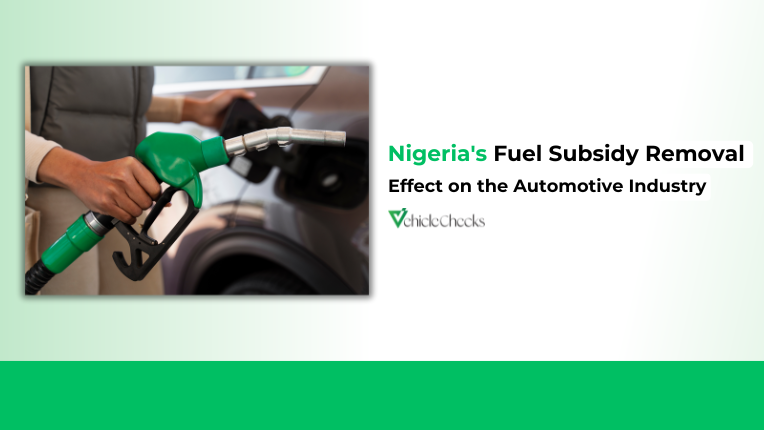In 2023, there are predicted to be nearly 14million new electric cars worldwide registered; the total fleet of such vehicles stands at 40 million There is a quick transition to Electric vehicles (EVs) happening around the globe and Nigeria is starting to feel it.
While countries like the United States and China are leading the charge in adopting EVs, the question remains: is Nigeria ready? The future of EVs in Nigeria is abounding with opportunities but, at the same time, filled with threats that have to be overcome.
We will consider the trends, challenges, and opportunities for the Nigerian automotive industry.
Global Trends and the EV Boom
The global EV market is experiencing a remarkable surge, driven by several key factors that are reshaping the automotive industry.
Environmental Concerns
Nigeria has a population of about 170 million with a rapid annual growth of 2.8 percent, which is adversely contributing to environmental degradation. The realization of the climate change crisis and the degradation of the environment has greatly boosted the uptake of cleaner means of transport. Therefore, electric vehicles present a green approach as they compete lower greenhouse gas emissions with their gasoline and diesel solutions. Global governments are setting up more rigid standards for emissions and introducing bonuses on the purchases of EVs, which enhances their use.
READ ALSO: Top 6 Car Selling and Buying Scams in Africa and How to Avoid Them
Decreasing Fuel Prices
As far as the border prices and their fluctuations are concerned, traditional fuel prices have always been unstable due to various factors such as geopolitics, supply chain risk factors, and speculative market forces. On the other hand, the electricity source that is commonly used to power the EVs is relatively cheaper and has a more stable price, proving that. This stability not only helps consumers the price of fuel they need to pay but also has other implications in relation to energy security. Also, emerging trends in the production of renewable electricity sources like sun and wind power make electricity even more favorable for operating automobiles.
Increase in Innovation
There is currently an attack on innovation in the automotive industry, especially in the areas of software engineering. Big companies like Tesla are working to improve their software. Today, EVs are more and more incorporated with innovative technologies comprising self-driving features, software upgradability, and complicated driver-helping systems. These add to safety, adjustability, comfort, and generally the feel or experience of driving. In addition, in focus on the consumer, the traditional scheme of buying a car is changing with the use of special applications for mobile devices, an opportunity to purchase a car online, and individual approaches to customer support.
Increased Charging Infrastructure
The proliferation of charging stations is a critical component of the EV ecosystem; research and much paperwork are currently underway to encourage investment in the charging ecosystem. Governments and private companies worldwide are investing heavily in building a comprehensive and reliable network of charging stations.
This infrastructure is a necessity as the key impediment, known as range anxiety, puts off many prospective buyers from buying electric cars. DC fast-charging, facilities that can restore the vehicle battery to about 80% of capacity in minutes are coming closer and closer to middle and long-distance travel.
| Did you know you can now report a stolen vehicle or check for free whether a vehicle was stolen? Report or Check Now! |
READ ALSO: Does Vehicle Insurance Covers Theft In Africa? (Explained)
The Nigerian Electric Car Landscape
Nigeria’s EV market is still in its infancy, but there are promising signs of progress and growing interest among stakeholders.
A few pioneering companies have begun to introduce electric vehicles to the Nigerian market. For instance, CIG Motors has launched the Hyundai Kona Electric, marking a significant milestone in the country’s journey towards EV adoption. These early adopters play a crucial role in raising awareness and demonstrating the viability of electric vehicles in the Nigerian context. Their efforts help to build consumer confidence and pave the way for broader acceptance of EVs.
The Nigerian government has expressed interest in supporting the development of the EV industry. Policies and initiatives aimed at promoting clean energy and sustainable transportation are being discussed and implemented.
For example, the government has indicated a willingness to offer incentives such as tax breaks and reduced import duties for electric vehicles and related infrastructure. Such measures are essential to create a favorable environment for the growth of the EV market and encourage investment from both local and international stakeholders.
Challenges for Electric Cars in Nigeria
Despite the potential and early progress, significant hurdles need to be overcome before electric cars can become mainstream in Nigeria.
Limited Charging Infrastructure
One of the main areas of concern at this time is the scarcity of charging stations. As per my check there is limited charging stations in Lagos, Abuja, and other major states of the federation. The present form of structures cannot contain many EVs and hence long distance travel is impractical and inconvenient. Another area of concern for potential EV buyers is about the charging infrastructure especially in unserved and under-served regions. This is a problem that is well solved by serious investment in the construction and maintenance of a credible and expansive network of charging depots all over the country.
High Cost
Electric cars, in most cases, are costly and expensive as compared to traditional fuel cars both in the initial purchase and in some cases, the cost of maintaining the car. This price stagnation acts as a hurdle for most of Nigeria, especially when placed into consideration the economic restraints prevalent within the average consumer. For the EVs make to be easily sold there is a need for reduced cost, and this can only be when there is local production increased production and government incentives. Besides, credit facilities like loans and leases for owning EVs can assist in widening access to affordable EVs among the population base.
Unstable Power Supply
Nigeria’s power supply network is generally volatile commonly characterised by frequent blackouts and a tendency to supply electricity for far less than desired. This unreliability becomes a big problem to EV owners since they need a reliable source of power that would charge their vehicles. Hence, the dependability of the power supply is a major factor that determines how favorable the experience of owning an EV is. An effort to enhance the National Grid and the availability of efficiency of Renewable energy sources are essential to get over this hurdle and make Charging of EV’s convenient for automobile consumers.
The Road Ahead for Electric Cars in Nigeria
The future of electric cars in Nigeria hinges on addressing these challenges and creating an enabling environment for adoption.
Government Incentives
Various tax exemptions and subsidies for the consumers of electric vehicles and for charging stations can go a long way in making more and more people switch to electric vehicles. Subsidies from the government are very important in efforts towards the popularization of EVs. Thus, the government can stimulate demand by removing import duties on EVs, providing rebates for those who are willing to buy electric vehicles, and offering grants for charger’s installation, this is gradually taking place as the next point will show.
Investment in Infrastructure
The expansion of the charging infrastructures remains the foundation for the improvement of the growth of electric cars within the country. It needs collective efforts of both – the public and private sectors – for its creation as well as sustenance. This comprises charging facilities in towns, city and housing estates, motorway, and other regions in the countryside. However, new concepts like mobile charging points and battery exchange stations can also mitigate the problems regarding inadequate infrastructure and can be beneficial to the EV users. In recent times foreign investors have been working with the Nigerian government to install charging stations around the country
Focus on Affordability
The availability of cheaper model of electric vehicle will extend the market and thus make it possible for more individuals in the society to access EVs. This way, local assembly of electric vehicles and more cooperation with international automobile manufacturers dealing in electric vehicles, can extend the possibility of lowering the costs of production of electric vehicles. In addition, measures for encouraging local production of ev’s such as subsidies, backing for research and development in electricity storage facilities can help pull down costs and hence increase the attractiveness of these vehicles.
Opportunities on the Nigerian electric car market are dozens, I want to name a few: with increased encouragement and investment, proper infrastructure for production and charging can become part of the long-term solution to Nigeria’s transport problems. The process to fully transitioning to the utilization of EVs in Nigeria could be a difficult one; however, the outcomes entail fewer emissions, better-grade air quality, and economic durability, making the idea of attaining the vision possible a noble cause.
What do you think? Are electric cars the future for Nigeria? Don’t hesitate to share your ideas in the frame of this discussion in the comments below!
| Did you know you can now report a stolen vehicle or check for free whether a vehicle was stolen? Report or Check Now! |





